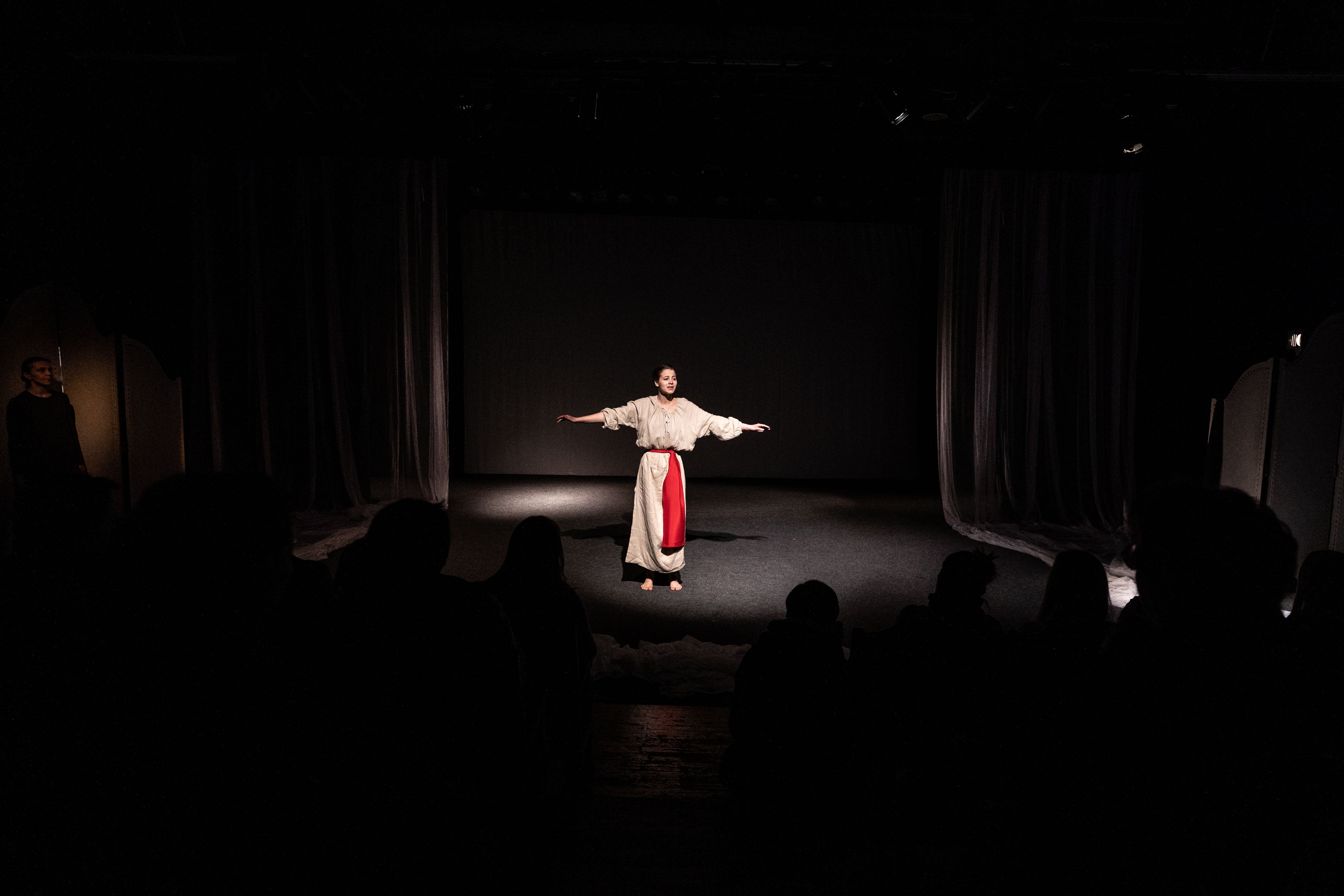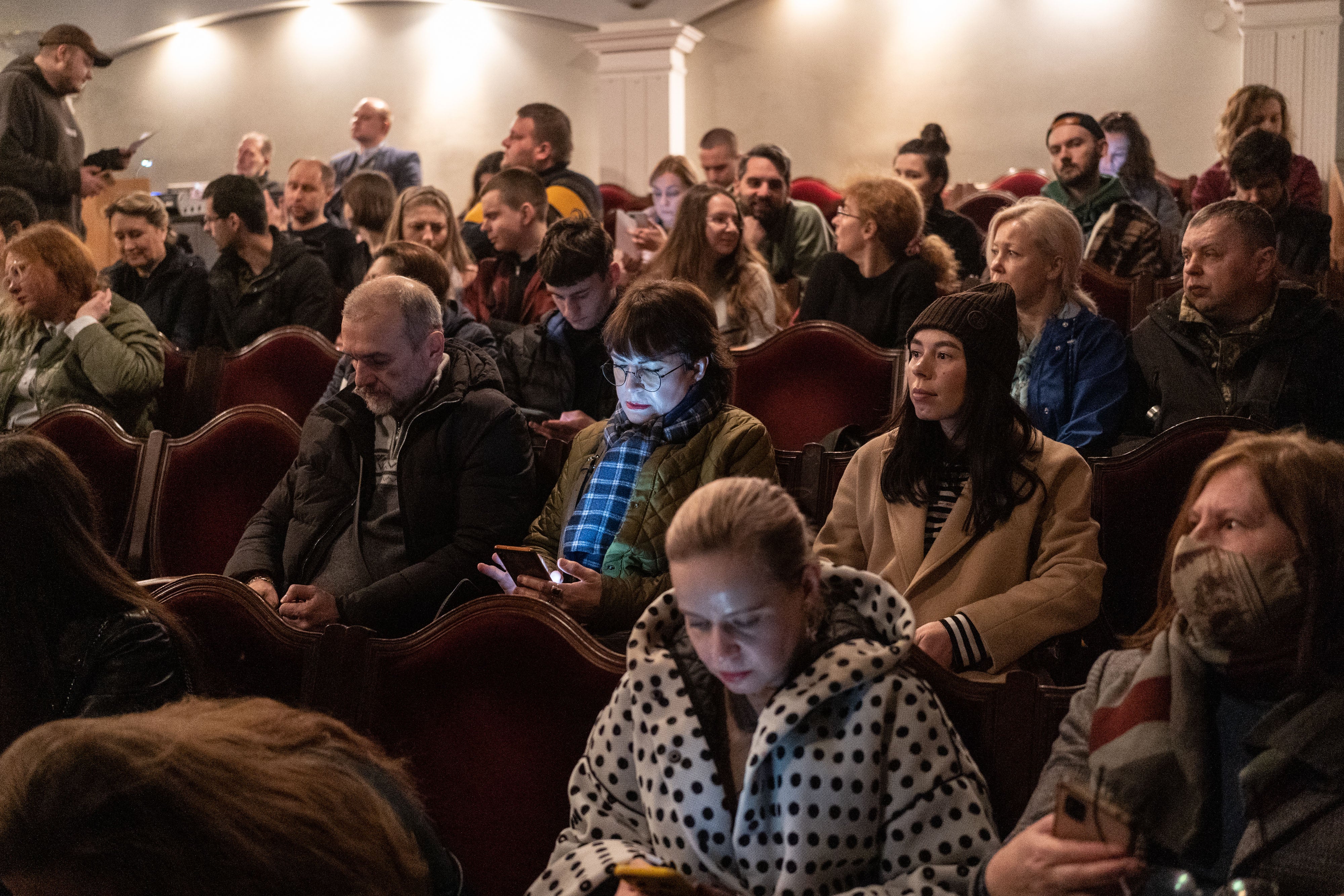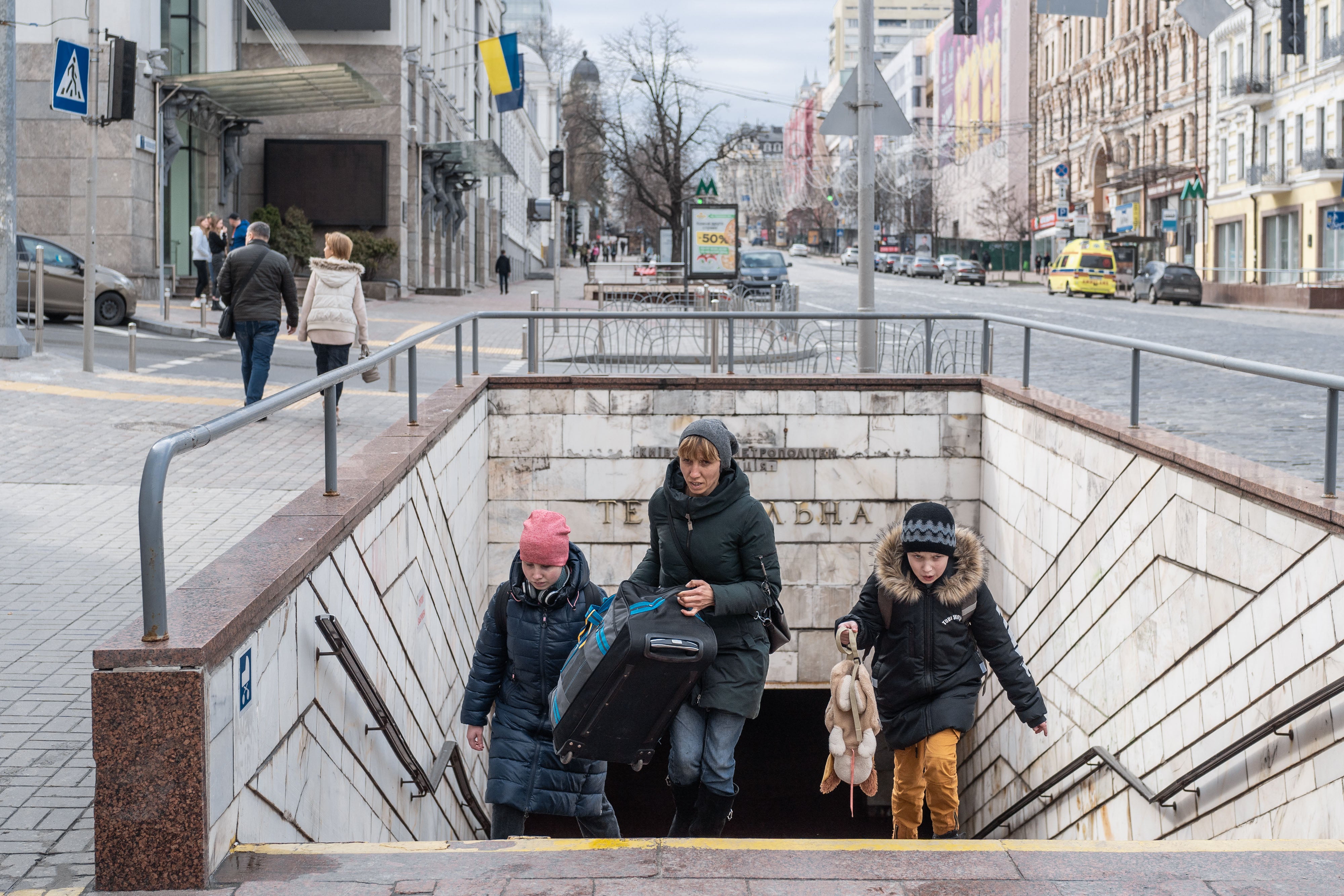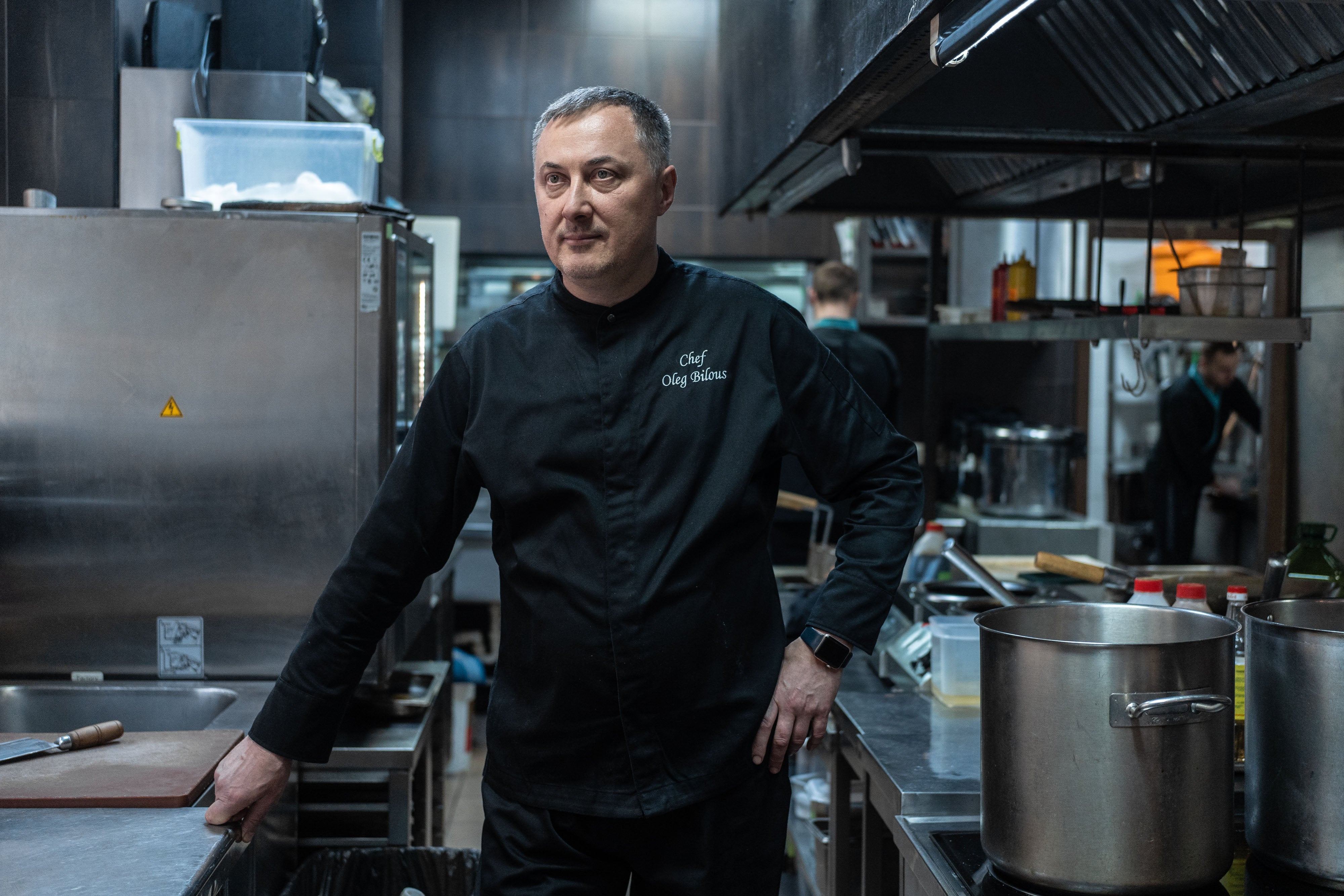Kyiv comes back to life with a mix of sadness, dark humour and triumph
‘We will slowly recover the cultural life of our capital’, Ukraine’s culture minister says before a play in Kyiv

The men wore blazers, the women sequined dresses. They walked quietly into the hushed theatre, and an usher directed them to their seats.
It was the first play anyone in Kyiv had seen since the war began more than six weeks ago. A matinee - curfew wouldn’t allow otherwise.
The lights dimmed, and an announcement piped through the speakers: Should the air raid sirens go off during the performance, everyone, actors included, was to head quickly to the nearby subway station for shelter.
Before the first act, Ukraine’s culture minister made a brief speech.
“I believe art heals wounds,” Oleksandr Tkachenko said. “We will slowly recover the cultural life of our capital.”
Kyiv, beloved Kyiv, is coming back to life - despite half of its 3 million residents having fled and Mayor Vitali Klitschko warning them to stay away. Rocket attacks could happen at any moment, he said; Russian saboteurs might still be in the city. Yet some people already have returned. Six times as many cars were on the road last week as the week before, according to police officials.
The capital escaped the destruction and mayhem that many feared, a fate its suburbs instead suffered as Russian forces tried to encircle Kyiv during their month-long occupation. In those outlying towns, mass graves and torture chambers are still being uncovered. Investigators are gathering evidence for thousands of potential war crimes amid the flattened rows of modest homes and apartment blocks.
And the sirens here still blare daily, even if the last shell fell more than two weeks ago. Checkpoints clog traffic. Regional police said 10,000 mines left by the Russians in Kyiv and its suburbs have been found and deactivated. There are certainly more, they added.
Even so, signs of reemergence are everywhere: joggers along the banks of the Dnieper River, the resumption of alcohol sales and electric scooter rentals, modified subway service. More than 900 supermarkets are open, as well as 460 cafes, the city government said on Sunday.

“Even with the situation in the suburbs, we felt we had to come back,” said Iryna Stohniienko-Vyhovska, 28, who arrived from western Ukraine on Friday with her husband, Dmytro; two children, Davyd, 7, and Ester, 3; and Porco the bulldog. “It’s a historic time to be here.”
They are at her father’s home in a placid neighbourhood along the river. The kids play in the yard, and all are sleeping well for the first time in weeks. Vynohradar, the neighbourhood on Kyiv’s northern edge where they lived, was bombed again and again. Davyd’s school was destroyed, as was the kindergarten next to Ester’s daycare.
While the city may feel relatively safe, parents like the Stohniienko-Vyhovskas are wary of exposing their children to scenes of destruction, death and decay. A friend of theirs, who had fled in a rush, got back to his apartment, opened his fridge and promptly vomited from the stench of rotting food.
“Because Davyd is older, he understands more about what happened,” Iryna said. “On the way back, he was evaluating the risk out loud. He’d ask, ‘Mommy, what if there are mines on this road?’

The boy has taken to playing war with his Nerf gun, attempting precision shots at his grandfather to flip the switch on an electric kettle from across the room.
It will be a long time before daily interactions and routines don’t feel touched by war. Ukraine continues to be very much in battle mode, and regions surrounding Kyiv are preparing for a renewed assault even as Russia’s strategic focus seems to be shifting well east of the city.
In part, what reopens is dependent on having access to a bomb shelter. The zoo, for instance, doesn’t have one and remains closed. But restaurants throughout Kyiv are trying to welcome back customers. Many spent March and early April cooking thousands of meals daily for soldiers manning checkpoints, overloaded hospitals and residents who sheltered in the subway system with no way to make food.
While the need for contributions has slowed, the high-end steakhouse and Asian bistro Oxota na Ovets - named after the novelist Haruki Murakami’s “A Wild Sheep Chase” - still prepares about 150 simple meals daily at a nearby hospital. Last week, it began serving a limited menu that included dry-aged rib-eye and Tom Yum soup with prawns.

“The hospital was getting 350 injured people a day and had just two cooks,” said restaurant director Olha Akizhanova, 28. There was no question of not helping - like millions of Ukrainians, she devoted the last six weeks to doing that for everyone possible.
The warehouse where her meat and seafood supplier had cold storage, in the nearly annihilated suburb of Bucha, was burned to the ground during an artillery battle. Akizhanova reached for dark humour to cope, joking that maybe with the Russian withdrawal her deliverymen could retrieve some “pre-grilled items” there.
“We’re finding a way,” she said. “I’ve been calling our regulars. They are being very polite, asking if they can book a table.”
Kyiv’s airport was bombed, though, and businesses that relied on air shipments will have to adapt to an indefinite future without its services. All the country’s ports are cut off by Moscow’s Black Sea blockade.
Oxota na Ovets head chef Oleg Bilous, 51, carried on with a blackened wit. “Australia is sending Bushmasters,” he said, referring to the recent announcement that armed personnel carriers for Ukraine’s military would be coming. “Maybe they can put some of their famous beef in the compartments.”
People are trying to restore what smidgens of normalcy they can. Kyiv is typically a lively city, with hordes of hipsters and gaggles of grocery-toting grandmas in equal measure. It has a rich theatre, music and club scene.
Getting back into some form of daily rhythm is a way of reassuring oneself that the worst may be past - that life might just go on.
“On that first night of bombing, when my daughter was crying, I realized we’d all be going through this immense wave of negative energy together, as a city,” said Kirill Kashlikov, 52, executive director of the Lesya Ukrainka National Academic Theater. “People need something to take them away from the atrocities they are seeing on their news feeds, away for a moment from the anger and sadness we’re all feeling.”
The theatre’s two shows on Saturday and Sunday sold out immediately. A special children’s show next week is also sold out.
Kashlikov has had to make significant adjustments. Some of his actors are not ready to return to Kyiv. Others are in the territorial defence, a division made up mostly of civilians that have taken over some law enforcement responsibilities. Saturday’s show only had eight actors instead of the usual 17, which required rewriting the play’s script and adapting it to a smaller stage.
Petro Sova, 42, one of the cast members, received a notice from the territorial defence that his first day reporting for duty would be the same day as the play’s premiere.
“I didn’t sleep for two nights. I couldn’t imagine it, holding a weapon,” he said. “But I spoke with Kirill and he said in this situation, we should all do what we do best.”
For Sova, that meant finding a way to defer his enrollment so he could be in the play. He arrived in Kyiv on Thursday from the Carpathian Mountains, where he had left the rest of his family until the city is safer. After rehearsal on Friday, he played down his singing skills.
But on Sunday, when he appeared on stage and burst into song, his voice was soaring, confident and full of life.
Washington Post
Join our commenting forum
Join thought-provoking conversations, follow other Independent readers and see their replies
Comments